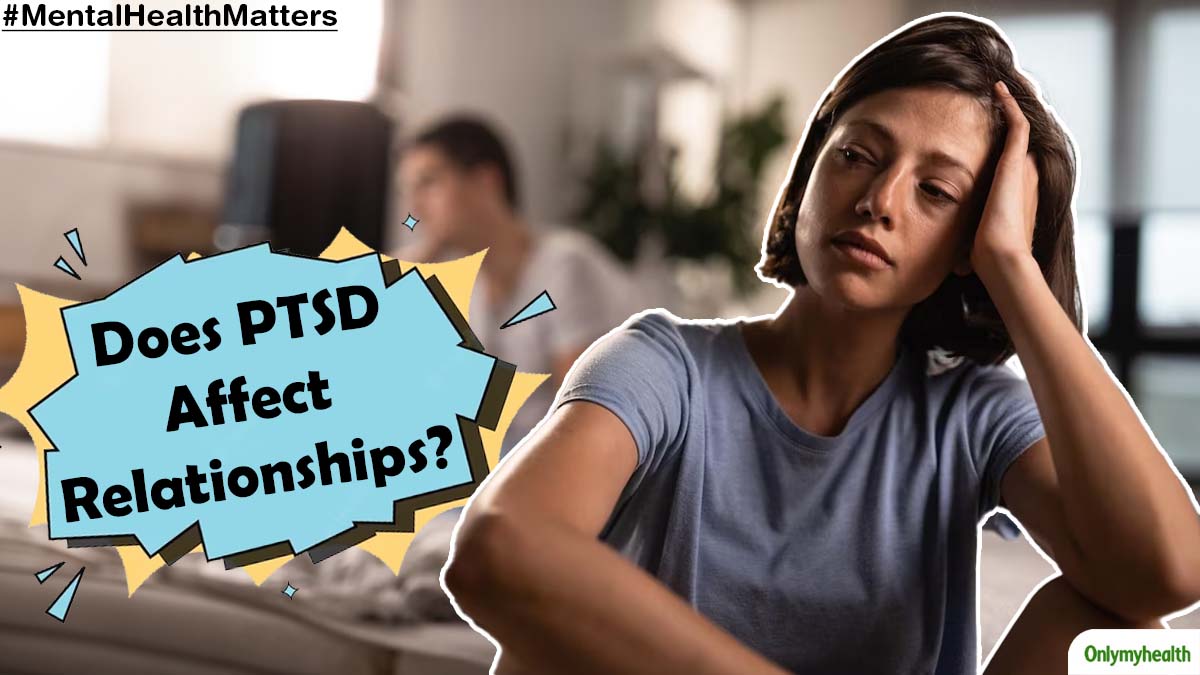
Have you ever felt like you're reliving a scary moment from the past? Or have you noticed someone you care about becoming distant, numb, or always on edge? These are just a few of the symptoms of Post-Traumatic Stress Disorder (PTSD) that can significantly impact relationships. It can be difficult for people with PTSD to trust or build closeness with people. It not only affects the mental health of people with PTSD but those related to them as well.
This week in our ‘Mental Health Matters’ series, we spoke to Diksha Singh, Counselling Psychologist, Lissun, who explained PTSD and how it affects your relationships.
What Is PTSD

Singh said, “Post-Traumatic Stress Disorder (PTSD) is a mental health condition that develops in response to exposure to a traumatic event. Individuals with PTSD often experience a range of distressing symptoms that can significantly impair daily functioning and quality of life. PTSD is a natural response to extreme stress, but when it persists and interferes with a person's ability to cope and move forward, professional intervention and support are often necessary to address and manage the condition effectively.”
Symptoms Of PTSD

The symptoms of PTSD typically encompass re-experiencing the traumatic event through:
- Flashbacks
- Nightmares or intrusive thoughts
- Avoidance of triggers associated with the trauma
- Increased arousal, such as being easily startled or hypervigilant
- Negative changes in mood and thinking, like persistent feelings of guilt, shame, or emotional detachment
It's important to note that PTSD symptoms can vary in intensity and presentation among individuals, and a proper diagnosis and tailored treatment plan are crucial for recovery.
How Does PTSD Affect Relationships?

Singh said, “PTSD can have a profound impact on relationships by causing emotional detachment, communication breakdowns, and increased conflict.” According to HHS Public Access, relationship distress in survivors and partners appears to be influenced by symptoms of PTSD and related illnesses (depression), which are linked to or may lead to various intrapersonal and interpersonal experiences.

Singh added, “Individuals with PTSD may struggle with emotional numbness or increased irritability, making it challenging to connect with loved ones. This emotional distance can lead to isolation and misunderstandings, as partners and family members may not fully grasp the extent of their loved one's trauma-related symptoms. Over time, these challenges can strain relationships, requiring patience, empathy, and support from both sides to navigate the effects of PTSD effectively.” According to the US Department of Veterans Affairs, 5-10% of those with PTSD continue to struggle in their relationships.
How To Deal With PTSD

Singh informed that managing relationships impacted by PTSD requires a dual approach, which includes:
- Partners and family members should educate themselves about PTSD to better understand their loved one's experiences.
- Encouraging the individual with PTSD to seek therapy can be crucial, as it provides tools for managing symptoms and improving communication. Singh added, “Couples or family therapy can also help address relationship-specific challenges, fostering understanding and effective coping strategies for both parties.”
- Patience, flexibility, and a non-judgmental attitude are essential in rebuilding trust and intimacy in relationships affected by PTSD.
It's essential to recognise that recovery is a journey, and professional guidance can be invaluable in healing and strengthening relationships affected by PTSD.
[Disclaimer: This article contains information shared by a medical professional and is for informational purposes only. Hence, if you or someone you know is dealing with mental health issues, seek professional guidance immediately.]







